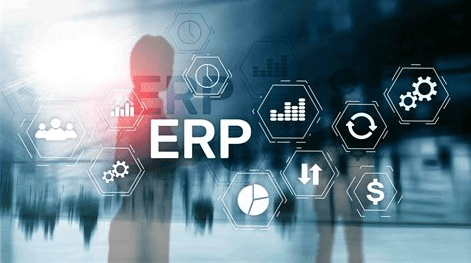Erp system for midsize company
Welcome to the world of ERP solutions for midsize companies! In today’s fast-paced business environment, organizations are constantly looking for ways to maximize efficiency and streamline their operations. Enterprise Resource Planning (ERP) systems offer a comprehensive solution that integrates various functions such as finance, HR, sales, and supply chain management into one centralized platform. By leveraging ERP solutions, midsize companies can improve productivity, reduce costs, and gain a competitive edge in the market. Let’s explore the benefits and features of ERP systems designed specifically for midsize businesses.
The Benefits of ERP Systems for Midsize Companies
ERP systems, or Enterprise Resource Planning systems, are powerful tools that can greatly benefit midsize companies in a variety of ways. These integrated software solutions can streamline and automate business processes, increase efficiency, improve decision-making, and ultimately boost profitability.
One of the key benefits of implementing an ERP system for a midsize company is improved efficiency. By consolidating all core business functions into a single system, employees can access and share real-time information across departments. This eliminates the need for manual data entry, reduces the risk of errors, and speeds up communication and collaboration between teams. With streamlined processes, employees can focus on more strategic tasks, leading to increased productivity and overall business growth.
Additionally, ERP systems provide midsize companies with better visibility and control over their operations. With a centralized database that contains all relevant business data, managers can generate accurate reports and analytics to gain insights into key performance metrics. This allows for informed decision-making and the ability to quickly identify areas for improvement. By having a comprehensive view of the business, midsize companies can make strategic decisions that drive growth and profitability.
Another benefit of ERP systems for midsize companies is the ability to adapt to changing business needs. As businesses grow and evolve, their requirements may change. An ERP system can easily scale to accommodate increasing data volumes, new users, and additional functionalities. This flexibility allows midsize companies to expand their operations without having to invest in new software or face disruptions to their business processes.
Furthermore, ERP systems can help midsize companies improve customer satisfaction and loyalty. By centralizing customer information and interactions, companies can provide personalized and efficient service to their clients. With access to real-time data, customer service representatives can quickly address inquiries, resolve issues, and provide timely updates to customers. This leads to higher customer satisfaction levels, repeat business, and positive word-of-mouth referrals.
In conclusion, ERP systems offer a multitude of benefits to midsize companies, ranging from increased efficiency and visibility to adaptability and improved customer satisfaction. By investing in an ERP system, midsize companies can optimize their operations, make data-driven decisions, and stay competitive in today’s fast-paced business environment.
Choosing the Right ERP System for Your Midsize Company
Choosing the right ERP system for your midsize company is a critical decision that can greatly impact your business operations and efficiency. With so many options available in the market, it can be overwhelming to narrow down the choices and find the perfect fit for your organization. Here are some key factors to consider when selecting an ERP system for your midsize company:
1. Assess Your Business Needs: Before you start looking at different ERP systems, it is important to assess your business needs and requirements. Identify the key pain points in your current processes and determine what features and functionalities you need in an ERP system to address these issues. This will help you prioritize your requirements and narrow down the list of potential vendors.
2. Scalability: One of the most important factors to consider when choosing an ERP system for your midsize company is scalability. As your business grows and evolves, your ERP system should be able to grow with you. Make sure the ERP system you choose can easily scale to accommodate your future needs, whether it’s adding more users, expanding to new locations, or integrating with other systems.
3. Integration Capabilities: An ERP system is the backbone of your business operations, so it is essential that it can seamlessly integrate with other systems and applications you use. Whether it’s your CRM software, e-commerce platform, or supply chain management system, your ERP system should be able to communicate and share data effectively with these systems to ensure smooth and efficient operations.
4. Customization Options: Every business is unique, and your ERP system should be able to adapt to your specific requirements. Look for an ERP system that offers customization options, so you can tailor the system to fit your business processes and workflows. This will not only improve efficiency but also enhance user adoption and satisfaction.
5. User-Friendly Interface: A user-friendly interface is crucial for successful implementation and adoption of an ERP system. Look for an ERP system that is intuitive and easy to use, so your employees can quickly learn how to navigate the system and perform their tasks efficiently. A clunky and complicated interface can lead to frustration and resistance from users, hindering the success of your ERP implementation.
6. Training and Support: Implementing an ERP system is a complex process that requires proper training and support to ensure a smooth transition. Look for an ERP vendor that offers comprehensive training programs and ongoing support to help your employees learn how to use the system effectively and troubleshoot any issues that may arise. Your vendor should be a reliable partner that is committed to your success and willing to provide the assistance you need throughout the life of your ERP system.
By considering these key factors and conducting thorough research, you can choose the right ERP system for your midsize company that will streamline your business operations, improve efficiency, and drive growth.
Implementing an ERP System in a Midsize Company
Implementing an ERP system in a midsize company can be a daunting task, but with careful planning and execution, it can lead to significant improvements in efficiency and productivity. Here are some key steps to consider when undertaking this process:
1. Assessing Business Needs: Before implementing an ERP system, it is crucial to assess the current state of the business and identify areas that could benefit from automation and streamlining. This could involve conducting interviews with key stakeholders, analyzing processes and workflows, and identifying pain points that need to be addressed.
2. Selecting the Right ERP System: Once the business needs have been identified, the next step is to select the right ERP system. It is essential to choose a system that is scalable, user-friendly, and aligns with the company’s objectives. Researching different ERP vendors, requesting demonstrations, and getting feedback from other companies in the same industry can help in making an informed decision.
3. Planning and Preparation: Before rolling out an ERP system, thorough planning and preparation are essential. This includes creating a detailed project plan, setting clear objectives and timelines, allocating resources, and appointing a project team to oversee the implementation process. It is also crucial to communicate with employees about the upcoming changes and provide training to ensure a smooth transition.
One of the critical aspects of planning is data migration. Migrating data from existing systems to the new ERP system can be a complex process, and it is essential to ensure data integrity and accuracy. This may involve cleaning up data, mapping fields, and testing the migration process to identify and resolve any issues before going live.
Another important aspect of planning is customization. While it is essential to find an ERP system that fits the company’s needs out of the box, some customization may be necessary to address specific requirements. This could involve creating custom reports, workflows, or modules to tailor the system to the company’s unique processes and workflows.
Additionally, planning for integration with other systems is crucial. An ERP system needs to be able to communicate with other software applications used by the company, such as CRMs, accounting software, or e-commerce platforms. Integration ensures seamless data flow and eliminates the need for manual data entry, reducing errors and improving efficiency.
Overall, careful planning and preparation are key to successfully implementing an ERP system in a midsize company. By assessing business needs, selecting the right ERP system, and planning for data migration, customization, and integration, companies can streamline processes, improve productivity, and drive growth.
Integration of ERP System with Other Business Applications for Midsize Companies
When it comes to integrating an ERP system with other business applications for midsize companies, there are several key considerations that need to be taken into account. One of the main challenges that midsize companies face is ensuring that their different business applications work seamlessly together to provide a cohesive and efficient workflow. This is where the integration of an ERP system becomes crucial.
First and foremost, it’s essential to assess the compatibility of the ERP system with the existing business applications. This involves looking at the different technology platforms, databases, and interfaces that are being used across the organization. The ERP system should be able to seamlessly connect with these applications without any major customization or development work required.
Another important consideration is the level of data synchronization between the ERP system and the other business applications. It’s crucial for midsize companies to ensure that data is updated in real-time across all systems to avoid any discrepancies or errors. This requires a robust integration strategy that includes data mapping, data transformation, and data validation processes.
In addition, midsize companies need to consider the scalability of the ERP system when integrating it with other business applications. As the company grows and expands, the ERP system should be able to accommodate the increased workload and data volume without any performance issues. Scalability also ensures that all the integrated applications can work seamlessly together without any lag or downtime.
Furthermore, security is a key concern when integrating an ERP system with other business applications. Midsize companies need to ensure that sensitive data is protected and securely transferred between different systems. This involves implementing stringent authentication processes, data encryption techniques, and access control measures to prevent any unauthorized access or data breaches.
Lastly, training and support are crucial aspects of integrating an ERP system with other business applications for midsize companies. Employees need to be trained on how to use the integrated system effectively and efficiently to maximize its benefits. Additionally, there should be a dedicated support team in place to provide assistance and troubleshooting in case of any technical issues or system failures.
In conclusion, integrating an ERP system with other business applications for midsize companies requires careful planning, thorough assessment, and a well-defined strategy. By considering factors such as compatibility, data synchronization, scalability, security, and training, midsize companies can ensure a successful integration that enhances their overall business operations and efficiency.
Case Studies of Successful ERP Implementations in Midsize Companies
Implementing an ERP system can be a daunting task for any company, especially for midsize companies with limited resources. However, there are numerous case studies of successful ERP implementations in midsize companies that showcase the benefits and positive outcomes of adopting an ERP system.
One such case study is of a midsize manufacturing company that was struggling with manual processes and disjointed systems. The company decided to implement an ERP system to streamline their operations and improve efficiency. After a successful implementation, the company experienced significant improvements in inventory management, production planning, and reporting capabilities. The ERP system allowed them to automate repetitive tasks, reduce lead times, and optimize their supply chain.
Another example is of a midsize distribution company that was facing challenges with inventory control and order processing. By implementing an ERP system, the company was able to centralize their data, improve inventory accuracy, and enhance customer service. The real-time visibility provided by the ERP system enabled the company to make better-informed decisions, reduce stockouts, and improve order fulfilment rates.
Additionally, a midsize service company successfully implemented an ERP system to improve project management and resource allocation. The ERP system helped the company streamline project workflows, track project costs, and optimize resource utilization. With the help of the ERP system, the company was able to deliver projects on time and within budget, leading to increased customer satisfaction and repeat business.
Furthermore, a midsize retail company transformed its business by implementing an ERP system to modernize its operations and improve customer experience. The ERP system integrated the company’s online and offline channels, enabling a seamless omnichannel experience for customers. The centralized customer data provided by the ERP system allowed the company to personalize marketing campaigns, improve sales forecasting, and drive customer loyalty.
Lastly, a midsize healthcare organization successfully implemented an ERP system to streamline patient care and optimize resource utilization. The ERP system improved the coordination of care among healthcare providers, reduced administrative burdens, and enhanced patient outcomes. The real-time data provided by the ERP system enabled the organization to identify trends, monitor key performance indicators, and make data-driven decisions to improve patient care.
These case studies demonstrate the transformative impact of ERP systems on midsize companies across different industries. By successfully implementing an ERP system, midsize companies can improve operational efficiency, enhance decision-making capabilities, and drive business growth. With the right ERP solution and proper planning, midsize companies can achieve long-term success and competitive advantage in their respective markets.






